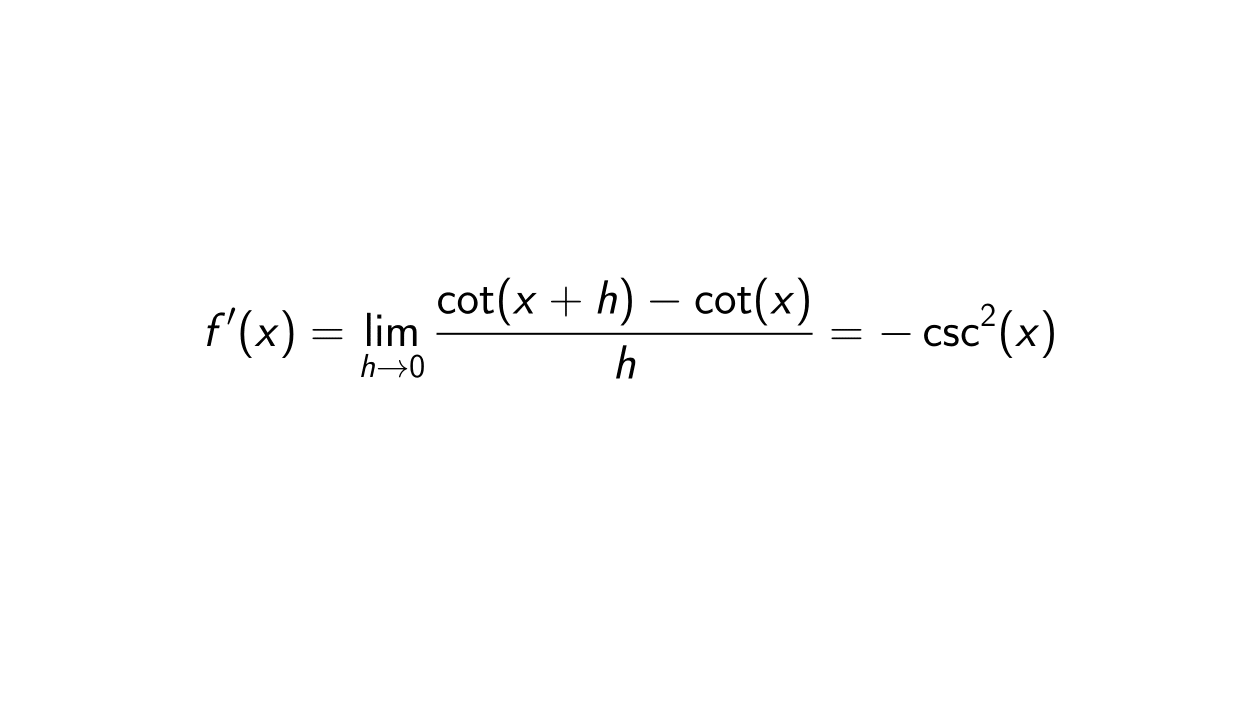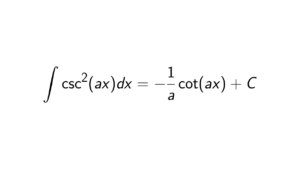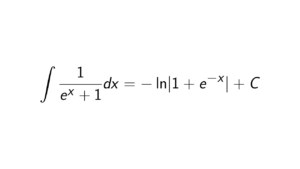Proof. Let f(x) = \cot(x) = \frac{1}{\tan(x)} = \frac{\cos(x)}{\sin(x)}. Then
\begin{align*}
f'(x) &= \lim_{h \rightarrow 0} \frac{f(x + h) - f(x)}{h} \\
&= \lim_{h \rightarrow 0} \frac{\cot(x + h) - \cot(x)}{h} \\
&= \lim_{h \rightarrow 0} \frac{\frac{\cos(x + h)}{\sin(x + h)} - \frac{\cos(x)}{\sin(x)}}{h} \\
&= \lim_{h \rightarrow 0} \frac{\frac{\cos(x + h)\sin(x) - \sin(x + h)\cos(x)}{\sin(x + h)\sin(x)}}{h}
\end{align*}\begin{align*}
\sin(A - B) = \sin(A)\cos(B) - \cos(A)\sin(B).
\end{align*}\begin{align*}
\cos(x + h)\sin(x) - \sin(x + h)\cos(x) = \sin(-h).
\end{align*}\begin{align*}
\lim_{h \rightarrow 0} \frac{\frac{\sin(-h)}{\sin(x + h)\sin(x)}}{h} &= \lim_{h \rightarrow 0} \frac{\sin(-h)}{h} \cdot \lim_{h \rightarrow 0} \frac{1}{\sin(x + h)\sin(x)} \\
&= - \lim_{h \rightarrow 0} \frac{1}{\sin(x + h)\sin(x)} \\
&= - \frac{1}{\sin^2(x)} \\
&= - \csc^2(x).
\end{align*}

